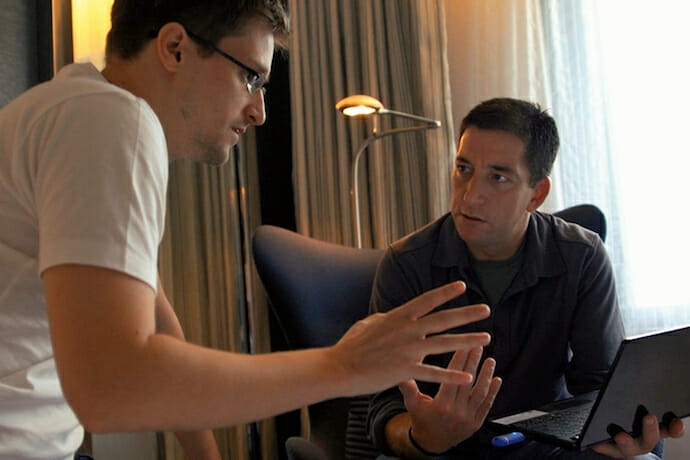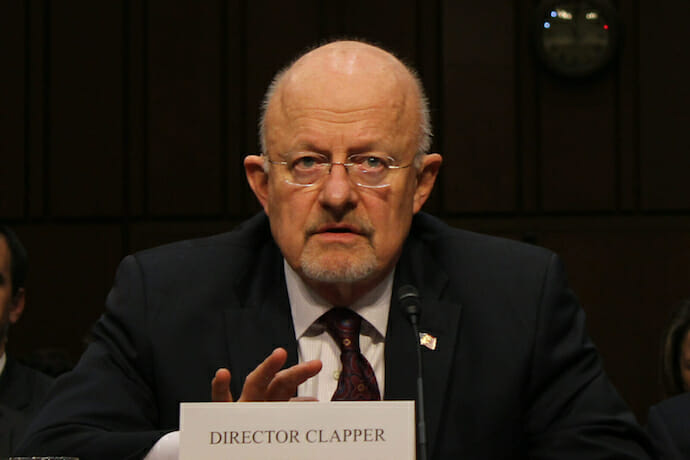
Culture
Participation and Rights: Why Do We Forfeit?
The awful events in Paris last Saturday are sure to spark new discussions about the measures governments take to try to prevent such attacks.
The debate over NSA eavesdropping and other domestic counter-terrorism measures had already been sparked this year with news that Edward Snowden is slated to receive clemency from the European Union, the passing of the USA Freedom Act, and National Intelligence Director James Clapper ironically calling for NSA transparency.
In the wake of the tragedies in Paris, it’s important that a valuable and nuanced discussion about these measures be had. Americans have been willfully and enthusiastically forfeiting their basic rights.
And it’s doubtful that it’s made us any safer.
The Fourth Amendment of the US Constitution protects citizens from warrantless searches and privacy invasions without probable criminal cause. This constitutional protection was, however, violated and disregarded regularly by the NSA since 1967.
These violations were ramped up substantially after 9/11 in the name of terror prevention. As a response, the US enacted The Patriot Act. The Patriot Act, particularly Section 215, gave the NSA vague and unchecked authority to surveil the world, including common US citizens without warrants or probable cause. Although the NSA acted illegally, unilaterally and largely unchecked, it wasn’t until Snowden revealed NSA documents in 2013 that the sordid details were exposed.
The question is, does the American public even care?
Much of the post-Snowden discourse surrounded the legality of government whistleblowers, the purported importance of domestic surveillance in the War on Terror and the embarrassment that was created by this exposure.

But very little discussion seemed to be made about our Constitutional rights and why they are important.
Rights are, by design, collective. A particular person’s relationship to the right is not a justification to broadly forfeit that right. One may not want to bear arms, but that doesn’t warrant someone else’s forfeiture of that right. Rights don’t merely exist as a utility based on one’s participation.
This is best exemplified by the popular sentiment, “I have nothing to hide.” This argument for the allowance of privacy invasion does a few, dangerous things. First, it is short sighted. Regardless of how ordinary you feel, the right you don’t need today may become the right you need tomorrow. Laws change and so do circumstances.
Cardinal Richelieu once warned, “Give me six lines written by an honest man, and I will find something in it with which to hang him.” Well, imagine what the government could do with the amount of data that would fill 250 billion DVDs!
Additionally, much of our privacy needs are not about legality, but about extremely personal information. This could include medical diagnoses, family problems, moments of uncharacteristic behavior. All of these factors could be compiled to frame any of us in a way that is not only inaccurate, but potentially life altering.
How would a spouse react to the implication that you were on the same corner where a murder was committed, even if you did nothing? Casting the shadow is often enough to turn our world upside down.
A drunken rant could become grounds for suspicion, even if it were the mere processing of a traumatic experience. Not caring because we “have nothing to hide” neglects the potential for abuses of data once collected.

Coupled with the, “I have nothing to hide” argument is the, “Those who need privacy are bad guys anyway” narrative. This completely fails to understand who was considered outside of the law in the past: Civil Rights activists, abolitionists and war protesters to name a few. Along the way, there were those who weren’t operating outside of the law, who were still disruptive enough to warrant privacy invasions, like Muhammad Ali, Jane Fonda and Martin Luther King, jr. So simply having a conviction that is outside of the interests of the US government could subject you to scrutiny.
Furthermore, once rights are encroached upon, they are sticky backwards. This means it often takes the energy of those who got the rights in the first place to return them once they are gone. Are we willing to permanently forfeit our privacy for a temporary, evolving and perhaps even hypothetical threat? When we do this, we invite the threat to become by us instead at us.
The least important element in this discussion is whether or not these surveillance tactics even work. Whatever their efficacy, the sacrificing of our freedom is too high of a cost. This cost is compounded, however, when it was revealed that mining our personal lives in order to catch terrorists was completely ineffective. The FBI admitted that these tactics solved no cases.
Ultimately, it is not the role of the government to check itself against itself. That responsibility falls in our hands, even the ordinary among us who have nothing to hide.

